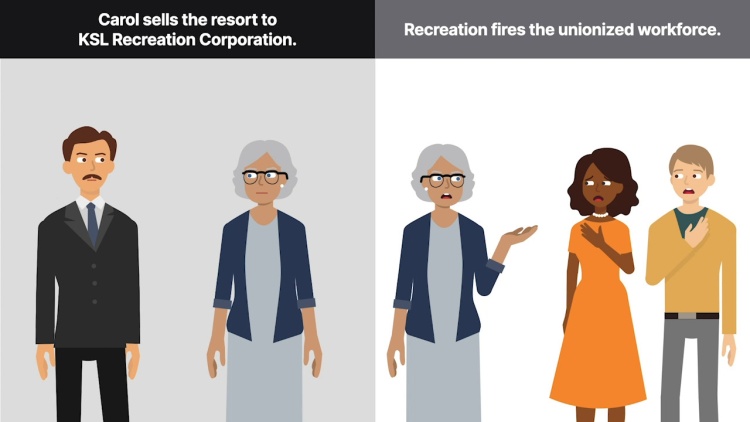UAW-GM Human Resource Center v. KSL Recreation Corp.
Michigan Court of Appeals
579 N.W.2d 411 (1998)

- Written by Sean Carroll, JD
Facts
UAW-GM Human Resource Center (HRC) (plaintiff) contracted with Carol Management Corporation (CMC) to use one of CMC’s hotels for a convention. The CMC agent who negotiated the contract was aware of HRC’s requirement that a union represent the hotel’s employees, and the agent orally agreed to this requirement. However, when signed, the contract did not include any requirements regarding union representation. The contract did include a merger clause that stated that the agreement constituted a merger of all proposals, negotiations, and representations. The contract also provided that HRC would be required to pay liquidated damages if it cancelled the agreement for any reason other than acts of God, government regulation, disaster, civil disorders, or other emergencies that rendered it illegal to hold the convention. After the contract was signed, the hotel was sold to KSL Recreation Corporation (KSL) (defendant). KSL dismissed the union employees at the hotel and replaced them with a nonunionized workforce. When HRC learned of this action, it cancelled the contract and demanded a refund of the down payment. KSL refused, and HRC sued KSL for breach of contract and fraud. The trial court granted summary judgment to HRC, and KSL appealed.
Rule of Law
Issue
Holding and Reasoning (Markman, J.)
Dissent (Holbrook, Jr., J.)
What to do next…
Here's why 907,000 law students have relied on our case briefs:
- Written by law professors and practitioners, not other law students. 47,100 briefs, keyed to 996 casebooks. Top-notch customer support.
- The right amount of information, includes the facts, issues, rule of law, holding and reasoning, and any concurrences and dissents.
- Access in your classes, works on your mobile and tablet. Massive library of related video lessons and high quality multiple-choice questions.
- Easy to use, uniform format for every case brief. Written in plain English, not in legalese. Our briefs summarize and simplify; they don’t just repeat the court’s language.





